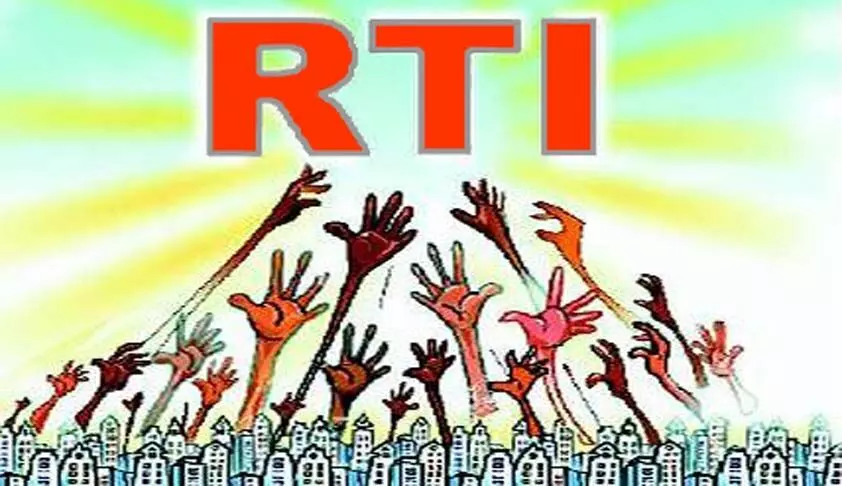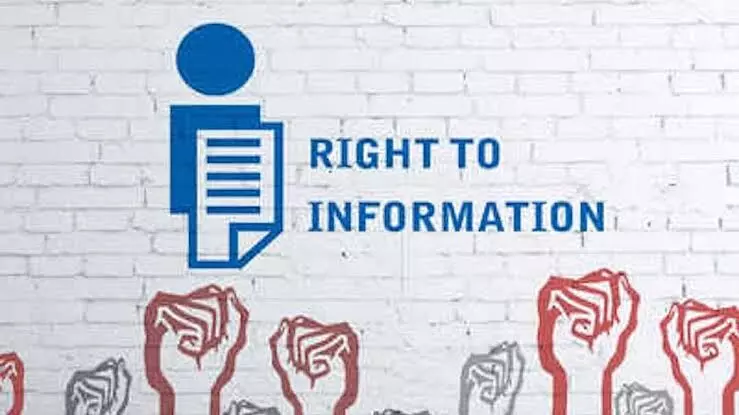
Right to Information needs to be re-activated
text_fieldsThe Right to Information Act (RTI), which was acclaimed as a signal achievement of democratic India, completed 17 years on October 12. The law was enacted in 2005 after years of popular agitations. But now, reports indicate that it may turn into a case of another popular weapon losing its edge. According to fact-checking site 'FactChecker', although fewer RTI applications are being rejected, delays and obstacles in getting information and disposing of appeals are increasing. The Commonwealth Human Rights Initiative points out that the number of attacks on RTI activists is also going up. Also raising concern is the report of the Satark Nagarik Sanghdan (SNS) released the other day reviewing the efficiency of the Information Commissioners. The very model of appointment of Central and State Commissioners is such that they encourage servility to seats of power. Many state commissions do not have a chief commissioner; there is a high number of vacant posts of commissioners too. In Jharkhand and Tripura, the RTI Commission itself is in limbo. Pending applications and appeals are piling up. 3.15 lakh RTI complaints are pending across 26 commissions. RTI commissions set up for transparency themselves are being deprived of their own transparency. The Central Information Commission has stipulated that each commissioner should dispose of 3,200 cases per year, but the actual disposals are only 2,600 - due to laxity and irresponsibility. The law requires every commission to submit an activity report to Parliament/Assembly every year. But, as SNS points out, 20 out of 29 commissions (69 percent) did not fulfil this last year.
From the executive to the courts, there have been instances of them taking a stand against people's rights. Even one-fourth of the commissioners' posts are left unfilled, which can be viewed as a government ploy against RTI. The e-filing system of commissions is not working in many places. Although there is a provision for fines for non-disclosure, in 95 percent of the cases, the commissions let off those guilty without any punishment. Administrators find a variety of excuses for not providing information, and Commissions often accept them. At least in some cases they stay closely aligned with the ruling establishment. When the government can even inform Parliament that there are no figures available for the victims of Covid-19 or of the workers who died on the road during the lockdown, it is no wonder that RTI commissions cease to be independent or transparent. This is more evident after the amendment to the law made in 2019 to empower the central government to appoint and fix the salaries of commissioners, in place of the predetermined scales of pay. Even when the Supreme Court set an example by bringing the Chief Justice himself under the purview of RTI, the government, on the contrary, has been showing a proclivity of exempting more positions and institutions from the jurisdiction of that law. There was even an incident in which the Gujarat State Commission banned 10 people from raising RTI queries, accusing them of causing a nuisance to government offices by asking unnecessary questions. The law does not allow the commission to do so. Moreover, activists have shown supported by facts that only one-hundredth of the total RTI queries would come under the 'unnecessary' questions.
The challenges faced by the RTI movement range from false cases taken to harass RTI activists to revenge killings. This shows that the very RTI movement is facing challenges today. Over 50 RTI activists have been killed in the last 17 years. The right to know is a fundamental right of the citizen. It is a touchstone by which the supremacy of the people is established and now it is facing challenges. When Delhi University was asked about the Prime Minister's educational qualifications (after he made a claim publicly), the university declined to respond. And when the RTI Commission insisted that the university should provide it, it still didn't comply - on the plea that it would affect the privacy of its alumnus. Public sector banks are not ready to disclose the loan liabilities of the big-ticket borrowers, even as they would fain bully the small borrowers in public. And it was none below the Central Information Commission which ruled that information on donations to political parties through electoral bonds is not in the 'public interest'. In the last three to four years, the Commission has not asked anyone to disclose a single piece of information as 'public interest'. In this situation, it would take the people themselves to ensure that their rights prevail. A strong RTI strand of RTI has to be developed as a grassroots movement of a democratic society. Right to Information is the sunlight that can destroy germs like corruption. It should not be let die out.


























